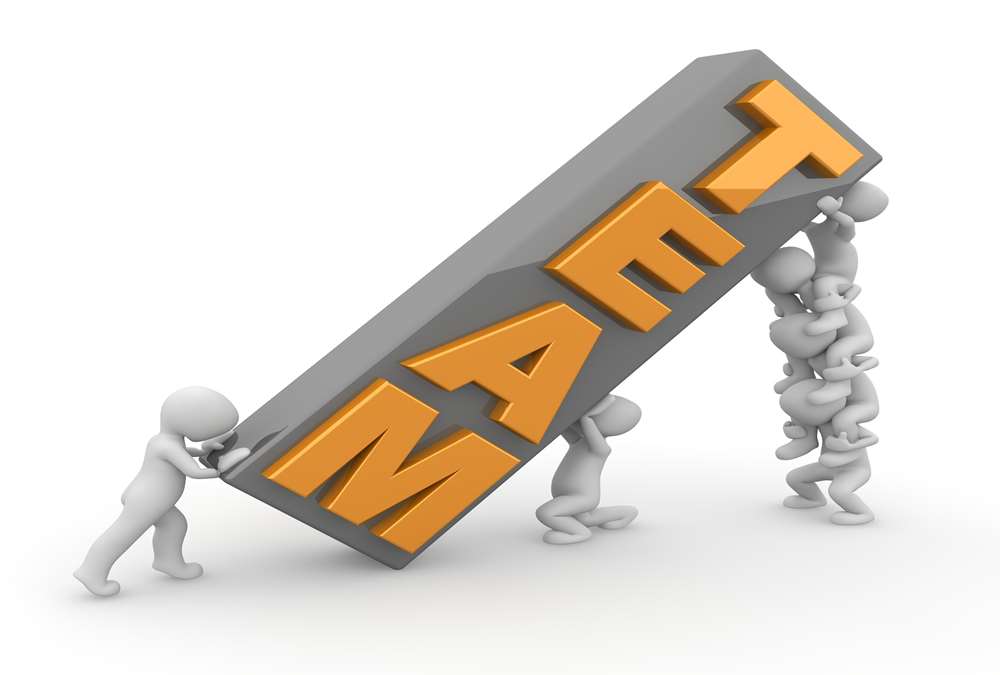- Home
- Business Processes
- Industry Knowledge
- Aerospace Industry
- Automotive Industry
- Banking Domain
- BFSI Industry
- Consumer/ FMCG Industry
- Chemicals Industry
- Engineering & Construction
- Energy Industry
- Education Domain
- Finance Domain
- Hospitality Domain
- Healthcare Industry
- Insurance Domain
- Retail Industry
- Travel and Tourism Domain
- Telecom Industry
- Leadership Skills
- eLearning
- Home
- Leadership
- Team Leadership
- Team Foundation in Forming Stage
Team Foundation in Forming Stage
This is the first stage of team development. This is the stage when the foundation of the team is laid. During the Forming stage, team members have a high dependence on their leader for guidance. Learn the practical strategies you can use during this stage to help your team develop into a highly effective performing team.
Good team development begins on day one and forming is the “Getting to Know You” stage. You can compare this stage with your first day at school as a child, or perhaps with your first day on a new job. Some obvious behaviors are; everyone is polite, overly cautious, and generally doesn't know what to expect. This is the first stage of group development – Forming where the team members are trying to get to know one another and getting comfortable with one another.
Establishing Roles and Responsibilities
In the Forming stage, the team comes together and members try to know each other and establish a common understanding and formulate roles and responsibilities. Team members may be excited and enthusiastic, but they may also be anxious. In this stage, the members try to explore and understand the behavior of the team members. They make their efforts in understanding the expectations of the peer team members, are polite, and exploring how to gain acceptability and fitment into the team. Because everything is new there is a fair amount of confusion and anxiety as members are naturally trying to understand their own roles, the roles of the other team members, and their purpose in the group. This is entirely natural and to be expected. People are unsure, suspicious, and nervous. Productivity might be low as people try to put their best foot forward.
Exploration by Members
It takes time for any new team to become a cohesive unit, “Forming” starts with lots of exploration as group members get to know one another. Think of this stage as an exploration period in which individual roles and responsibilities are being sorted out. In this stage, team members are generally enthusiastic and motivated by a desire to be accepted. They're typically very polite to each other and trying to figure out similarities and differences with others. First impressions play a key role as people try to figure out the similarities and differences. Issues that may arise are questions of whether each person feels like they belong to the group, whether other members can be trusted, and who is in charge.
Orientation is the most important task in the forming stage and members are looking towards the leader to provide the required direction. During the Forming stage, team members have a high dependence on their leader for guidance and the leader's task is directing, so that the group can get coordinated in their efforts.
Setting Operational Structures
This is also a good time to look at how the group is organized because the group has not yet molded into a strong, effective unit, therefore it's still relatively easy to reorganize the group if required. It's also helpful to set group ground rules, which are expectations about how work will be done, decisions will be made, and how people will treat each other. In short, the leader has a wonderful opportunity to be sure that the right people are in the right place using the right process. “Forming” stage is usually short, and sometimes may only last for a single meeting where the team members get introduced.
Forming an effective and cohesive team is fundamental to the overall success of the team and pulling the right team together from the start has benefited far beyond just completing tasks on time. Now we will focus on different strategies for dealing with issues that may arise during the first stage, “Forming”. You'll learn strategies for selecting high-performing team members most suited for your project or team, as well as recommendations for performing proper introductions, clarifying team purpose and context, and making sure team members understand their responsibilities. As a leader, you can use several strategies during this stage to build an effective team.
Tips for Forming Stage - Leaders:
Suggestions for the Team Leader/Member in this stage:
- Search out the people in your organization with the necessary skills and the time to be part of your team
- Provide team structure
- Ensure that members feel comfortable and knowledgeable about the group
- Give clear information on the project and goal or ask for clarity
- Clarify roles and responsibilities
- Clarify the team's goals and outline the planned schedule
- Clarify the individual role and how they will be contributing to the overall accomplishment
- Build enthusiasm by talking about why the group will be successful
- Promote an open and supportive environment
- Encourage relationship building
- Practice constructive team behaviors
- Educate about phases of team development – this will make it easier to move out of more difficult phases.
Characteristics of the Forming Stage:
- Exploration - Trying to know each other
- Focused - Trying to understand similarities and differences
- Confusion/Anxiety - Trying to gain acceptability
- Lower productivity – Everyone trying to put their best foot forward
- Leadership – Generally directive to set the tone
- Risk: Avoidance of conflict
- Learning: Gaining understanding about opportunities and challenges
- Excitement: Motivation and excitement about the project.
Related Links
You May Also Like
-
The development of teams is an ongoing process because the composition of the team may keep on changing. The new members may join and the old members may leave the team. The team members pass through several stages for the development of the team and there has been a lot of research to identify these stages. In this article, we discuss the common theories of team development.
-
Tools for Developing Your Team
If a manager has too many weak spots in the talent of the team, the ability to empower the team members to independently execute the project is impaired. Assignments fall behind schedule or stretch out because the needed skills or knowledge are not in place when needed. To successfully execute important projects, hiring talented people, and increasing the talents of existing staff are most important.
-
Listening is the foundation for good communication. It is also the hardest skill to master. Do you listen to confirm what you already know, or do you listen to explore and learn new things? How can we create receptive communication as a listener? The real art of listening involves awareness and sensitivity to the feelings of the speaker because it is at the feeling level that genuine connection, relationship, and healing occurs.
-
Collaborative leadership is all about collaborative problem-solving and decision-making or can also be defined as the leadership of a collaborative effort. . The term started to appear in the mid-1990s in response to the formation of long term public-private partnerships to rebuild public infrastructure. Learn how you can use principles of collaborative leadership to enhance your leadership skills for being an effective leader.
-
Many people think communication is easy. It is said that communication can never be a hundred percent complete. Many factors are involved in the process of communication and something can always go wrong with one or more of these. It becomes difficult and complex when we put barriers in communication. Recognize barriers to interpersonal communication and examine specific strategies for overcoming those barriers.
-
Generating Ideas using Brainstorming
The brainstorming technique was developed by Alex F. Osborn in 1957 and brainstorming means where a team of members generates a large amount of alternative fruitful ideas on a specific problem without any criticism and then evaluates each idea in terms of their pros and cons. Brainstorming techniques fall into four broad categories: visioning, exploring, modifying, and experimenting.
-
Laissez-faire is a style of leadership that affords the group members a great deal of independence. Tasks are delegated to the group members and they are responsible to see the project through to fruition. Research has shown that this style of leadership leads to the lowest levels of productivity. This article explains this style and covers the implications of having a hands-off approach and the situations where this style could be effective.
-
Process & Stages of Creativity
Creative ideas do not come just like that. There is a process to it. There are a number of techniques of creativity to support the generation of ideas but the widely practiced ones are brainstorming and lateral thinking. Most innovations are not so much the product of sudden insights as they are the result of a conscious process that often goes through multiple stages. The creative process can be divided into four stages of preparation, incubation, evaluation, and implementation.
-
“Level 5 Leadership”, this term was coined by Jim Collins in his book “Good to Great” and it is all about achieving "Greatness" as a leader. This article will explain what we mean by Level 5 Leadership and what the characteristics of a Level 5 leader are. What it takes to achieve greatness as a leader, and what are the steps and strategies that one can use to move up to this top level of leadership.
-
Benefits of Teams in Workplace
The use of formal work teams is commonplace in modern organizations. But why we have teams? What are the benefits or advantages that teams provide for organizations and employees? Do we really need to adopt formal team structures and use team-building approaches in organizations? Read this article to explore and learn the benefits of having formal teams in organizations.
Explore Our Free Training Articles or
Sign Up to Start With Our eLearning Courses

About Us
Learning
© 2023 TechnoFunc, All Rights Reserved










